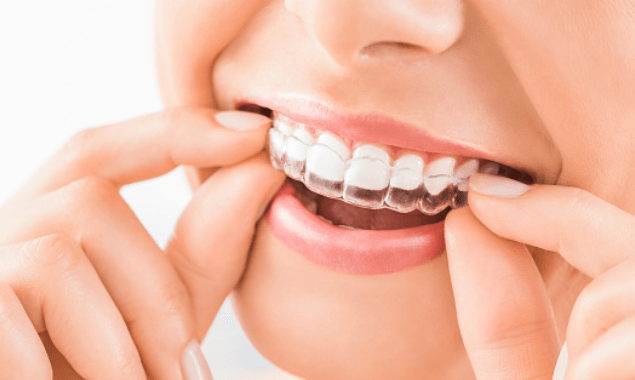The Benefits of Dental Implants for Jawbone Health: Why They’re More Than Just Cosmetic
When we think about dental implants, the first thing that often comes to mind is how they improve your smile and boost confidence. While dental implants are an excellent cosmetic solution for missing teeth, their benefits go far beyond aesthetics. Implantat tänder also plays a crucial role in maintaining oral health, particularly when it comes to supporting jawbone strength, preventing bone loss, and preserving the natural structure of your face. One of the most critical but less obvious advantages of dental implants is their impact on jawbone health. In this article, we’ll explore why dental implants are more than just cosmetic, focusing on their essential role in maintaining and improving the health of your jawbone.
The Role of Your Jawbone in Oral Health
Before we dive into how dental implants help the jawbone, it’s important to understand the jawbone’s role in your overall oral health. Your jawbone supports your teeth, and in return, your teeth help keep the jawbone strong and healthy. Every time you chew, your teeth stimulate the jawbone, encouraging it to maintain its density and structure. When you lose a tooth, this process is disrupted. Without the tooth to stimulate the bone, the jawbone in that area begins to deteriorate or resorb, leading to bone loss. Over time, this can cause a variety of issues, including changes in your facial structure and difficulties with chewing and speaking.
How Dental Implants Support Jawbone Health
Unlike other tooth replacement options like dentures or bridges, dental implants do more than fill the gap left by a missing tooth. Here’s why they’re crucial for jawbone health:
Prevent Bone Loss

The most significant advantage of dental implants for jawbone health is their ability to prevent bone loss. When a dental implant is placed, a titanium post is inserted into the jawbone. This post acts like the root of a natural tooth, stimulating the bone every time you chew. This stimulation signals the body to maintain the bone’s structure, much like a natural tooth would. Without an implant or similar structure, the bone will continue to deteriorate, leading to significant bone loss over time.
Maintain Facial Structure
When bone loss occurs, it can affect the shape of your face. You may notice that people who have lost multiple teeth often develop a “sunken” look, especially around the mouth and jaw area. This is because the jawbone begins to shrink without proper stimulation. Dental implants help preserve the jawbone, which in turn helps maintain your facial structure. By keeping the bone strong and healthy, implants prevent that sunken appearance, helping you look more youthful and ensuring that your face retains its natural shape.
Improve Chewing Function

When you lose teeth, chewing can become difficult, especially if you’re missing multiple teeth. Dentures and bridges can help restore some function, but they don’t provide the same level of support as dental implants. Because implants are securely anchored in the jawbone, they function like natural teeth. This allows you to chew with more force and efficiency, which in turn stimulates the jawbone. By promoting healthy bone activity, implants improve not only your ability to eat but also the long-term health of your jaw.
Prevent Shifting of Teeth
When a tooth is missing, the surrounding teeth may begin to shift into the empty space, causing misalignment. This shifting can create bite issues, further complicating your ability to chew and potentially leading to more bone loss in other areas of the jaw. Dental implants prevent teeth from shifting by filling in the gap and keeping your remaining teeth properly aligned. By ensuring that your teeth stay in place, implants help reduce the strain on the jawbone and protect against uneven bone wear or loss.
While dental implants undoubtedly offer a cosmetic solution to missing teeth, their true value lies in their ability to support and preserve jawbone health. By preventing bone loss, maintaining facial structure, and improving chewing …








 Rheumatoid Arthritis is a chronic autoimmune disease, is no stranger to those who suffer from its debilitating effects. This condition primarily affects the joints, causing inflammation and pain that can severely impact mobility and quality of life. One of the distinguishing features of RA is its symmetrical nature. Unlike other forms of arthritis, it often affects one side of the body more than the other, RA tends to affect corresponding joints on both sides.
Rheumatoid Arthritis is a chronic autoimmune disease, is no stranger to those who suffer from its debilitating effects. This condition primarily affects the joints, causing inflammation and pain that can severely impact mobility and quality of life. One of the distinguishing features of RA is its symmetrical nature. Unlike other forms of arthritis, it often affects one side of the body more than the other, RA tends to affect corresponding joints on both sides.

 One of the most important things you can do to speed up bone fracture healing is to ensure you get enough of the proper nutrients. For instance, your body needs protein to build new tissue and repair existing damage. You also need vitamins and minerals like calcium, phosphorus, and vitamin D to support strong bones. Make sure you’re eating a healthy diet that includes plenty of protein-rich foods and calcium- and vitamin D-rich foods. You can also talk to your doctor about taking supplements if necessary.
One of the most important things you can do to speed up bone fracture healing is to ensure you get enough of the proper nutrients. For instance, your body needs protein to build new tissue and repair existing damage. You also need vitamins and minerals like calcium, phosphorus, and vitamin D to support strong bones. Make sure you’re eating a healthy diet that includes plenty of protein-rich foods and calcium- and vitamin D-rich foods. You can also talk to your doctor about taking supplements if necessary. Most people commonly think that if they can move the broken bone, it’s healed. However, this isn’t always the case. In fact, trying to move a broken bone before it’s completely healed can do more harm than good. It can delay healing and cause additional damage. So, no matter how tempting it may be, resist the urge to test your broken bone.
Most people commonly think that if they can move the broken bone, it’s healed. However, this isn’t always the case. In fact, trying to move a broken bone before it’s completely healed can do more harm than good. It can delay healing and cause additional damage. So, no matter how tempting it may be, resist the urge to test your broken bone.
 One of the primary reasons to buy health insurance in 2022 is the changing lifestyle. With more and more people living sedentary lifestyles, the need for health insurance has increased. More people are suffering from obesity and other weight-related issues, leading to a host of other health problems. Having health insurance can help offset the costs of these health problems and ensure that you’re getting the care you need.
One of the primary reasons to buy health insurance in 2022 is the changing lifestyle. With more and more people living sedentary lifestyles, the need for health insurance has increased. More people are suffering from obesity and other weight-related issues, leading to a host of other health problems. Having health insurance can help offset the costs of these health problems and ensure that you’re getting the care you need. Another reason to buy health insurance is the income tax benefits. When you have health insurance, you can deduct the cost of your premiums from your taxes. It can help you save a significant amount of money each year. You can also remove any out-of-pocket medical expenses that you incur. It can help you save even more money each year.
Another reason to buy health insurance is the income tax benefits. When you have health insurance, you can deduct the cost of your premiums from your taxes. It can help you save a significant amount of money each year. You can also remove any out-of-pocket medical expenses that you incur. It can help you save even more money each year.
 Many might think that sex during a period is not recommended. However, when you are in sexual intimacy with your partner, no one can ensure to guarantee the abstention of sexual intercourse during menstruation. Thus, you have to find an alternative, including protection suppose you are caught off guard. Some steps might help to make sure yeast doesn’t go to your vagina through the tip of your penis. Both partners in the relationship should know how to perform safe sex. Learn and read more about how to have safe sex during menstruation from
Many might think that sex during a period is not recommended. However, when you are in sexual intimacy with your partner, no one can ensure to guarantee the abstention of sexual intercourse during menstruation. Thus, you have to find an alternative, including protection suppose you are caught off guard. Some steps might help to make sure yeast doesn’t go to your vagina through the tip of your penis. Both partners in the relationship should know how to perform safe sex. Learn and read more about how to have safe sex during menstruation from  The onset of a yeast infection can disrupt your hygiene. The drain is likely to be smelly and much worse. There are ways that you can maintain to keep the area clean. For instance, using apple cider vinegar could be a fantastic help to kill a number of these yeast infections. It will also heal much faster than the above predictions. At the same time, you may need to change your daily diet to reduce the food source for yeast growth. For example, make sure that about 65% of your daily diet consists of carbohydrates.
The onset of a yeast infection can disrupt your hygiene. The drain is likely to be smelly and much worse. There are ways that you can maintain to keep the area clean. For instance, using apple cider vinegar could be a fantastic help to kill a number of these yeast infections. It will also heal much faster than the above predictions. At the same time, you may need to change your daily diet to reduce the food source for yeast growth. For example, make sure that about 65% of your daily diet consists of carbohydrates.



 One of the common signs is to experience constant nausea and diarrhea. When both symptoms often appear due to some allergy, you are most likely gluten intolerant or lactose intolerant. If you have diarrhea all the time, then there is an apparent problem, and you must visit your doctor immediately.
One of the common signs is to experience constant nausea and diarrhea. When both symptoms often appear due to some allergy, you are most likely gluten intolerant or lactose intolerant. If you have diarrhea all the time, then there is an apparent problem, and you must visit your doctor immediately. People who have gluten intolerant often feel tiredness every time eating gluten. However, this is not a typical type of exhaustion. It is instead an incredibly foggy and lethargic feeling after consuming a gluten-based food. In extreme situations, it can get to the point where you have to fall asleep every day. Doing the small tasks can be tremendously difficult, and it feels like you’d rather sleep most of the day.
People who have gluten intolerant often feel tiredness every time eating gluten. However, this is not a typical type of exhaustion. It is instead an incredibly foggy and lethargic feeling after consuming a gluten-based food. In extreme situations, it can get to the point where you have to fall asleep every day. Doing the small tasks can be tremendously difficult, and it feels like you’d rather sleep most of the day.
 A well-known all-natural remedy is salt treatment. The salt negatively charged ions (that could be located in areas like the beach or waterfalls) decrease the quantity of swelling and mucus in the lungs. The slime and the inflammation moving down the airways become cleared for the individual from liquefying. It’s also easier to cough and expel what’s undesirable from the lungs. Salt treatment can do a great deal for you and may also be used easily in your home. This therapy is not confined to just people that are affected by a respiratory disease. It can assist you in preventing several distinct illnesses until they influence you by strengthening your immunity. It is secure, cheap, and does not include any possible side effects as many prescription medications do. Go natural and attempt salt treatment now!
A well-known all-natural remedy is salt treatment. The salt negatively charged ions (that could be located in areas like the beach or waterfalls) decrease the quantity of swelling and mucus in the lungs. The slime and the inflammation moving down the airways become cleared for the individual from liquefying. It’s also easier to cough and expel what’s undesirable from the lungs. Salt treatment can do a great deal for you and may also be used easily in your home. This therapy is not confined to just people that are affected by a respiratory disease. It can assist you in preventing several distinct illnesses until they influence you by strengthening your immunity. It is secure, cheap, and does not include any possible side effects as many prescription medications do. Go natural and attempt salt treatment now! Salt treatment does more than thoroughly cleansing the lymph system. It’s a beneficial influence on these patients’ wellbeing and calms the central nervous system. It is considerably more challenging for it to spread and infect your system by killing the bacteria’s rise. In general, these extra bonuses of salt treatment are only going to continue enhancing your wellbeing. Since salt treatment is still curable, it makes it a superb solution for kids, particularly fussy ones. They won’t see the salt particles they are breathing. A growing number of studies show that the positive influence and enhanced quality of life salt treatment had on the sufferers. Besides recent research, salt treatment was utilized for centuries as folk medication. Europe includes many salt sanatoriums, the remedies being insured by the health ministry in many European nations.…
Salt treatment does more than thoroughly cleansing the lymph system. It’s a beneficial influence on these patients’ wellbeing and calms the central nervous system. It is considerably more challenging for it to spread and infect your system by killing the bacteria’s rise. In general, these extra bonuses of salt treatment are only going to continue enhancing your wellbeing. Since salt treatment is still curable, it makes it a superb solution for kids, particularly fussy ones. They won’t see the salt particles they are breathing. A growing number of studies show that the positive influence and enhanced quality of life salt treatment had on the sufferers. Besides recent research, salt treatment was utilized for centuries as folk medication. Europe includes many salt sanatoriums, the remedies being insured by the health ministry in many European nations.…

 Speaking of the history of salt treatment, it has been used for centuries. Yogis first used this practice as meditation. They call this practice as ‘Neti’. Furthermore, Richard F. Smith studied the harmful effects of air pollutants. He then proposed micro salt to be sprayed in a room to clean the respiratory system.
Speaking of the history of salt treatment, it has been used for centuries. Yogis first used this practice as meditation. They call this practice as ‘Neti’. Furthermore, Richard F. Smith studied the harmful effects of air pollutants. He then proposed micro salt to be sprayed in a room to clean the respiratory system. 



 This workout is only in a set of exercises made to kick your cardio to high gear. Begin with standing and carry out the first pair of top knees, one on each side. Bring your knees up large as you’re running set up. Instantly move to some push-up place on the ground and perform one mountain climber on every leg. Do so by bringing a knee to your chest at one time. You have finished one rep. Repeat both of these exercises five times per day to complete one set before enabling your body to break for as much as two minutes. Then, repeat this whole show six times for novices, eight to intermediates, and ten days for you aerobic pros.
This workout is only in a set of exercises made to kick your cardio to high gear. Begin with standing and carry out the first pair of top knees, one on each side. Bring your knees up large as you’re running set up. Instantly move to some push-up place on the ground and perform one mountain climber on every leg. Do so by bringing a knee to your chest at one time. You have finished one rep. Repeat both of these exercises five times per day to complete one set before enabling your body to break for as much as two minutes. Then, repeat this whole show six times for novices, eight to intermediates, and ten days for you aerobic pros. They might be rough, but they operate. To begin, stand tall with your feet hip-width aside and bend both knees, extending your arms as you jump as high into the atmosphere as you can. Jump back your legs, so you wind up in a plank position and then fall into a push. Return to the board and jump with both feet straight between your palms and return to work. Immediately repeat. Do as many repetitions as possible for a single minute.…
They might be rough, but they operate. To begin, stand tall with your feet hip-width aside and bend both knees, extending your arms as you jump as high into the atmosphere as you can. Jump back your legs, so you wind up in a plank position and then fall into a push. Return to the board and jump with both feet straight between your palms and return to work. Immediately repeat. Do as many repetitions as possible for a single minute.…

 The first few weeks are extremely important for vaccinations. Because huskies like to chew on objects, it is wise to keep household cleaning products out of the pet’s reach. Anything that would be avoided with a child alone should also be avoided with a puppy. As far as meals go, dogs should be fed a couple of times a day between six and fourteen days of age. After the puppy reaches 12 weeks, feeding three times a day is fine. Some human foods are poisonous to dogs, and if you give your puppy leftover food, you are only encouraging begging.
The first few weeks are extremely important for vaccinations. Because huskies like to chew on objects, it is wise to keep household cleaning products out of the pet’s reach. Anything that would be avoided with a child alone should also be avoided with a puppy. As far as meals go, dogs should be fed a couple of times a day between six and fourteen days of age. After the puppy reaches 12 weeks, feeding three times a day is fine. Some human foods are poisonous to dogs, and if you give your puppy leftover food, you are only encouraging begging. Huskies are clean dogs, so they only need to be washed a couple of times a year unless they end up in a mud puddle or get very dirty. Bathing can be done in a tub or outdoors. So it’s essential to make sure to rinse off all the shampoo. To dry, you can use a towel or hairdryer. Be sure to keep her inside or out of the cold until her jacket is dry. After the jacket is dry, you should brush it to remove any loose hair.
Huskies are clean dogs, so they only need to be washed a couple of times a year unless they end up in a mud puddle or get very dirty. Bathing can be done in a tub or outdoors. So it’s essential to make sure to rinse off all the shampoo. To dry, you can use a towel or hairdryer. Be sure to keep her inside or out of the cold until her jacket is dry. After the jacket is dry, you should brush it to remove any loose hair.

 It’s almost as if you don’t have to talk about how to function in your game. But you’d be surprised how many people claim to want to be specialists, but their work habits don’t reflect any of these claims. Know what you’re good at, what you’re good at, and what you’re damn good at. Once you’ve graduated, you need to optimize the time slots you’ve blocked off just for basketball during this time and implement them. Track your progress so you know you’re improving. Just make sure you work out when you have to instead of watching TV on the couch.
It’s almost as if you don’t have to talk about how to function in your game. But you’d be surprised how many people claim to want to be specialists, but their work habits don’t reflect any of these claims. Know what you’re good at, what you’re good at, and what you’re damn good at. Once you’ve graduated, you need to optimize the time slots you’ve blocked off just for basketball during this time and implement them. Track your progress so you know you’re improving. Just make sure you work out when you have to instead of watching TV on the couch.

 The modern dentist uses the latest precision technology to provide health care services with accuracy, efficiency, and greater relaxation. The dentist can make complete care decisions in dental wellness services like 3D imaging aids of accurate representation of bone density, nerve location along tooth placement. It creates a more precise and highly individualized treatment program to provide non-invasive and invasive corrective solutions to take care of oral problems economically. Therefore, you won’t need to worry about the equipment.
The modern dentist uses the latest precision technology to provide health care services with accuracy, efficiency, and greater relaxation. The dentist can make complete care decisions in dental wellness services like 3D imaging aids of accurate representation of bone density, nerve location along tooth placement. It creates a more precise and highly individualized treatment program to provide non-invasive and invasive corrective solutions to take care of oral problems economically. Therefore, you won’t need to worry about the equipment.
 You must consult a specialist before switching your dog to a homemade diet. First, they will evaluate your puppy and his history. Then, they can help you create recipes that meet all of his nutritional needs. Just like people, dogs are different for they have their own nutritional needs based on age, weight, activity level, breed, and health status. To make this selection on your own, you should do extensive research and learn about the specific nutritional needs of dogs.
You must consult a specialist before switching your dog to a homemade diet. First, they will evaluate your puppy and his history. Then, they can help you create recipes that meet all of his nutritional needs. Just like people, dogs are different for they have their own nutritional needs based on age, weight, activity level, breed, and health status. To make this selection on your own, you should do extensive research and learn about the specific nutritional needs of dogs. Always remember that every recipe is just a starting point. Everywhere you go you can discover other food recipes that you think your dog will enjoy and recipes that fit your budget. Ask your veterinarian or a puppy nutrition expert for certain concerns, and a pet nutrition expert can evaluate your pet based on the variables above and help you tailor the recipes to your dog’s needs. Recipes may be fine as is, or they may require some changes. A veterinarian or puppy raiser may recommend adding additional supplements, multivitamins, or other ingredients to provide your dog with all the nutrients his body needs to stay healthy and productive.…
Always remember that every recipe is just a starting point. Everywhere you go you can discover other food recipes that you think your dog will enjoy and recipes that fit your budget. Ask your veterinarian or a puppy nutrition expert for certain concerns, and a pet nutrition expert can evaluate your pet based on the variables above and help you tailor the recipes to your dog’s needs. Recipes may be fine as is, or they may require some changes. A veterinarian or puppy raiser may recommend adding additional supplements, multivitamins, or other ingredients to provide your dog with all the nutrients his body needs to stay healthy and productive.…
 All salts aren’t created equal! There is an assortment of additives used in salt chambers such as Dead Sea, Mediterranean, Himalayan, Frequent Sea Salt, distinct combinations, and pharmaceutical grade salt. Salt can be used as space décor and salt is employed in halogenerators.
All salts aren’t created equal! There is an assortment of additives used in salt chambers such as Dead Sea, Mediterranean, Himalayan, Frequent Sea Salt, distinct combinations, and pharmaceutical grade salt. Salt can be used as space décor and salt is employed in halogenerators.  Countless individuals are successfully treated with salt treatment. There’s substantial research conducted in several areas, including hospitals, clinics, research labs, and health care facilities across the world. The salt and walls don’t inherently provide any therapeutic value except that Himalayan salt in its standard form does supply some electrolyzed ions, which increase the therapeutic advantage of these remedies. Today, you will find present studies happening in the USA and some other areas further support the science supporting this kind of treatment.…
Countless individuals are successfully treated with salt treatment. There’s substantial research conducted in several areas, including hospitals, clinics, research labs, and health care facilities across the world. The salt and walls don’t inherently provide any therapeutic value except that Himalayan salt in its standard form does supply some electrolyzed ions, which increase the therapeutic advantage of these remedies. Today, you will find present studies happening in the USA and some other areas further support the science supporting this kind of treatment.…
 Our increasingly sedentary habits undoubtedly play a significant role in weight loss. Dr. Levine’s inactivity study began when he wanted to determine why some people gained weight and others did not. Participants were put through a two-month experiment in which they were instructed to eat the lab’s foods and cut back on exercise. However, some participants did not gain fat when Dr. Levine added 1,000 extra calories a day to their diet. Six years later, he took it a step further by using underwear with motion tracking. The subjects who didn’t gain weight moved more often, unconsciously.
Our increasingly sedentary habits undoubtedly play a significant role in weight loss. Dr. Levine’s inactivity study began when he wanted to determine why some people gained weight and others did not. Participants were put through a two-month experiment in which they were instructed to eat the lab’s foods and cut back on exercise. However, some participants did not gain fat when Dr. Levine added 1,000 extra calories a day to their diet. Six years later, he took it a step further by using underwear with motion tracking. The subjects who didn’t gain weight moved more often, unconsciously.
 In cases like this, surgery or medication may be an alternative. In cases like this, treating the imbalance can help solve the issue. One reason why excessive weight and fat collection is when an individual consumes more calories than they utilize. With time, this may result in weight gain. Some kinds of food are more likely to cause weight reduction. This may result in changes in the body, which results in extra weight reduction. Reducing the consumption of processed foods, processed and ready food that’s high in fat and sugar, while increasing the use of whole grains and other high-fiber foods, like fresh fruits and veggies, can help an individual shed weight. One benefit of a high-fiber diet is that the body feels complete more rapidly, making it less tempting to consume more. Whole grains enable an individual to feel full for longer since they release their energy slowly.
In cases like this, surgery or medication may be an alternative. In cases like this, treating the imbalance can help solve the issue. One reason why excessive weight and fat collection is when an individual consumes more calories than they utilize. With time, this may result in weight gain. Some kinds of food are more likely to cause weight reduction. This may result in changes in the body, which results in extra weight reduction. Reducing the consumption of processed foods, processed and ready food that’s high in fat and sugar, while increasing the use of whole grains and other high-fiber foods, like fresh fruits and veggies, can help an individual shed weight. One benefit of a high-fiber diet is that the body feels complete more rapidly, making it less tempting to consume more. Whole grains enable an individual to feel full for longer since they release their energy slowly. While the body will not burn off some calories when an individual is merely sleeping or sitting, for many people, the more active they are, the more calories that the body will burn off. Nevertheless, this will take some time. To lose 1 pound of fat, an individual should burn off 3,500 calories. The CDC proposes doing 60-90 minutes of reasonably intense activity most days of this week. Individuals who aren’t utilized to exercising or who find it hard to be busy due to mobility or health issues should talk to a health professional about how to work out and how to begin. Someone who’s not in the practice of exercising shouldn’t start with too strenuous an action because this might pose a health hazard.
While the body will not burn off some calories when an individual is merely sleeping or sitting, for many people, the more active they are, the more calories that the body will burn off. Nevertheless, this will take some time. To lose 1 pound of fat, an individual should burn off 3,500 calories. The CDC proposes doing 60-90 minutes of reasonably intense activity most days of this week. Individuals who aren’t utilized to exercising or who find it hard to be busy due to mobility or health issues should talk to a health professional about how to work out and how to begin. Someone who’s not in the practice of exercising shouldn’t start with too strenuous an action because this might pose a health hazard. A physician will sometimes prescribe drugs, such as Xenical, to enable someone to eliminate weight. The National Institutes of Health notice that individuals should utilize medications along with a reduced-calorie diet. Orlistat doesn’t replace lifestyle changes. Side effects include gastrointestinal disorders, such as fatty stool and diminished or increased defecation. Some individuals have reported an undesirable impact on the respiratory system, joints, muscles, headaches, and many others. From 1997 to 2010, physicians could prescribe sibutramine, also. However, the United States Food and Drug Administration (FDA) withdrew consent from 2010 because of worries regarding severe adverse outcomes.…
A physician will sometimes prescribe drugs, such as Xenical, to enable someone to eliminate weight. The National Institutes of Health notice that individuals should utilize medications along with a reduced-calorie diet. Orlistat doesn’t replace lifestyle changes. Side effects include gastrointestinal disorders, such as fatty stool and diminished or increased defecation. Some individuals have reported an undesirable impact on the respiratory system, joints, muscles, headaches, and many others. From 1997 to 2010, physicians could prescribe sibutramine, also. However, the United States Food and Drug Administration (FDA) withdrew consent from 2010 because of worries regarding severe adverse outcomes.…

 Staying active is another wonderful way to make sure your body stays healthy. Exercising regularly helps strengthen your joints, muscles, bones, and tendons, which is essential whether you are old or young. When it comes to
Staying active is another wonderful way to make sure your body stays healthy. Exercising regularly helps strengthen your joints, muscles, bones, and tendons, which is essential whether you are old or young. When it comes to 




 Although there is no specialization in cosmetic dentistry, many people who want to be the best in this field must undergo cosmetic and restorative dental treatments. Like artists displaying their masterpieces in a gallery, many reputable cosmetic dentists like to show off their work. People should ask for examples of cosmetic dental treatments. Many dentists post before and after photos in online smile galleries. However, some dentists show retouched and stock before and after photos. If they have problems, they can ask the dentist to have patient referrals to call to learn more.
Although there is no specialization in cosmetic dentistry, many people who want to be the best in this field must undergo cosmetic and restorative dental treatments. Like artists displaying their masterpieces in a gallery, many reputable cosmetic dentists like to show off their work. People should ask for examples of cosmetic dental treatments. Many dentists post before and after photos in online smile galleries. However, some dentists show retouched and stock before and after photos. If they have problems, they can ask the dentist to have patient referrals to call to learn more.






 If you’re being treated for a particular respiratory difficulty, salt concentration might be put to a high degree. The component helps this kind of problem by clearing the airways, which helps your body quickly expel mucus. At higher concentrations, halotherapy can also aid in skin ailments. Salt spas provide you another comfortable experience. The ceilings and walls have the component integrated into various ways, with a few flowing down walls or hanging from the top, similar to stalactites. The area smells like the shore, and you’ll likely taste it. Organic, pure salt is generally utilized. Some salt spas may use the wild type based upon the place.
If you’re being treated for a particular respiratory difficulty, salt concentration might be put to a high degree. The component helps this kind of problem by clearing the airways, which helps your body quickly expel mucus. At higher concentrations, halotherapy can also aid in skin ailments. Salt spas provide you another comfortable experience. The ceilings and walls have the component integrated into various ways, with a few flowing down walls or hanging from the top, similar to stalactites. The area smells like the shore, and you’ll likely taste it. Organic, pure salt is generally utilized. Some salt spas may use the wild type based upon the place.

 Simulation facilities are nearly ubiquitous in nursing and medical schools; many health programs now incorporate simulation to reinforce face-to-face clinical experiences and educational content. Over the past two decades, simulation has gained popularity for its use as part of excellent healthcare programs, offering unique educational benefits supported by studies demonstrating its effectiveness. Some pre-licensure applications, such as nursing, have begun using simulation as a replacement for face-to-face clinical hours with the support of accrediting agencies and state licensing boards after a recent pioneering multi-site study provided evidence that high-quality simulation can replace up to 50 percent of clinical hours and still produce similar educational outcomes. Acadicus is a good example of a digital simulation product. Here it is used with students participating remotely in a digitally simulated case.
Simulation facilities are nearly ubiquitous in nursing and medical schools; many health programs now incorporate simulation to reinforce face-to-face clinical experiences and educational content. Over the past two decades, simulation has gained popularity for its use as part of excellent healthcare programs, offering unique educational benefits supported by studies demonstrating its effectiveness. Some pre-licensure applications, such as nursing, have begun using simulation as a replacement for face-to-face clinical hours with the support of accrediting agencies and state licensing boards after a recent pioneering multi-site study provided evidence that high-quality simulation can replace up to 50 percent of clinical hours and still produce similar educational outcomes. Acadicus is a good example of a digital simulation product. Here it is used with students participating remotely in a digitally simulated case.
 Technically, a
Technically, a  Your skin is your largest organ of the body, so if you’ve got lousy flow, it shows up in dull, light, or stained skin. The circulatory system includes nutrients such as oxygen, minerals, and vitamins through the entire body while removing byproducts/waste. One method to enhance circulation is a workout – yet another is massage. A study at the University of Illinois in Chicago found massage treatment improves general blood circulation and massage therapy is a typical portion of facial treatment. Revive Spa and Skincare deliver many different facial remedies, ranging from the classic European facial into the elaborate HydraFacial, having a range of add-on choices.…
Your skin is your largest organ of the body, so if you’ve got lousy flow, it shows up in dull, light, or stained skin. The circulatory system includes nutrients such as oxygen, minerals, and vitamins through the entire body while removing byproducts/waste. One method to enhance circulation is a workout – yet another is massage. A study at the University of Illinois in Chicago found massage treatment improves general blood circulation and massage therapy is a typical portion of facial treatment. Revive Spa and Skincare deliver many different facial remedies, ranging from the classic European facial into the elaborate HydraFacial, having a range of add-on choices.…